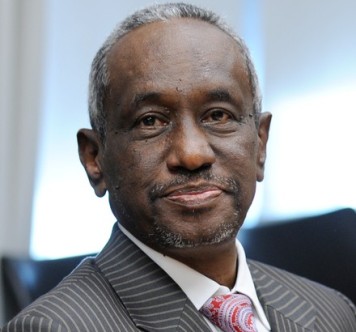Sudan’s VP Taha warns state owned companies against withholding hard currency
January 13, 2011 (KHARTOUM) – The Sudanese 2nd Vice President Ali Osman Taha on Thursday gave an ultimatum to state owned companies that they must wire any holdings of hard currency to the central bank by January16th or face a freezing of their accounts, Sudan official news agency (SUNA) reported today.

He added that more steps to restructure these companies will be taken and revealed that decisions will be made later to dissolve them. But it was not clear if he was referring to privatizing them or simply shutting them down.
Last October, the government ordered appropriate agencies to generate the list of firms owned by it in preparation for their privatization. It justified the move by saying that it will lead to strengthening the private sector and making it stand on its feet and provide more job opportunities.
Sudan began privatizing state firms in the 1990s but the economy has been somewhat restrained by U.S. economic sanctions imposed since 1997 isolating them from international money markets. Corruption and bureaucracy have also hindered growth.
However, the issue of privatization became more pressing as the budget deficit soared coupled with chronic shortage in foreign exchange reserves. The North is also wary of the impact generated by the seemingly inevitable secession of the South following the ongoing referendum.
Sudan derives close to half of its GDP from selling 470,000 barrels per day of crude oil which comes mostly from wells in the south, with the infrastructure in the north. Under a 2005 peace deal oil from the south is divided about 50-50 between the semi-autonomous southern government and Khartoum.
Some sharing is likely to continue in a post-secession scenario as it will take years for the south to build refineries and a pipeline to a Kenyan port. But the north’s share will likely be reduced. Khartoum has moved to expand non-oil sectors to compensate.
The loss even if partial of oil revenue will cause a drop in inflow of foreign currency, impact public finances and balance of payments which could lead to additional pressure on the fiscal deficit and the country’s foreign exchange reserve which already at record lows.
Last month, the government began the first phase of measures aimed at ending subsidies on petroleum products and sugar by raising their prices to the public. Furthermore, a 25% cut in salary for 149 ministerial-level government officials and a 30 percent reduction in foreign travel for the government were introduced.
The ministry of external trade also released a list of products that merchants are prohibited from importing such as furniture, dairy products and meat among others. The local banks have been banned from financing any imports of these products or issuing letters of credit for them.
(ST)

Agutran
Sudan’s VP Taha warns state owned companies against withholding hard currency
The look in Taha’s face is priceless; it’s full of trounce and compunction.
Matung Neng-neng
Sudan’s VP Taha warns state owned companies against withholding hard currency
I believe there is no place like Sudan, Sudan is the most bless in the world, nature give us every thing. The surface of our land is best for our agriculture and beneath is full of oil. Now, we have two main problem, 1) USA tries to control our development and second, those gangs arise in south seemed to influence Darfur. This is what I mean, I was born in Unitystate of Sudan, and joined SPLA a Rebels since I was 12 years old in 1985, all I notice they have no objective or particular aim except money making reason and our people were totally missled, to keep it short, take this example, the peace was in 2005, 6 years have passed by, the rebel are given 51% oil revenue share, $2 billion for budget every year for all these 6 years, they have 3 blocks private oil drilling companies, and $4.44 billion dollars, where are all these moneys and where is changed, absolutely there are nothing, they are just gangs.
Anyway, see you later.
Matung